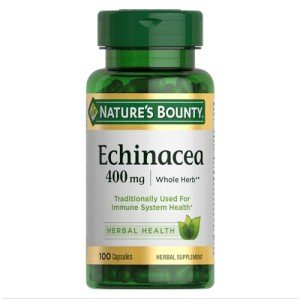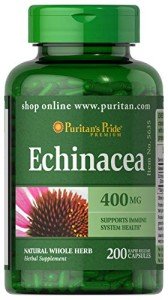Introduction
Ginseng has long held a reputation as one of nature’s most powerful healing herbs. From traditional Chinese medicine to modern-day wellness routines, ginseng is praised for its wide-ranging benefits, from boosting energy and brain power to improving sexual health and immunity. But what does ginseng do to your body? And how can you take it effectively to maximize its potential?
In this guide, we’ll break down the key health benefits of ginseng, how it affects your body and mind, and which forms (tea, tablets, root, or supplements) work best. We’ll also touch on important side effects, safety considerations, and how ginseng compares to other natural remedies.
What Is Ginseng?
Ginseng refers to several species of slow-growing plants with fleshy roots, most commonly Panax ginseng (Asian/Korean ginseng) and Panax quinquefolius (American ginseng). These roots contain active compounds known as ginsenosides, believed to be responsible for most of the health effects associated with ginseng.
Common Forms:
- Ginseng Root: Used raw or dried; often boiled for tea.
- Ginseng Tea: A popular traditional drink offering mild stimulation.
- Ginseng Tablets & Capsules: Convenient supplements with standardized dosages.
- Ginseng Extracts & Powders: Potent and fast-absorbing forms found in energy shots or herbal formulas.
🟩 Read more: Ginseng Tea vs. Ginseng Tablets: Which Is Better for Boosting Energy?
🟩 Explore: Ginseng Supplements Demystified: Forms, Functions, and When to Take Them
Top Health Benefits of Ginseng
1. Boosts Energy and Fights Fatigue
Ginseng is best known for its natural energy-enhancing properties. It supports cellular energy production and helps reduce oxidative stress, resulting in less fatigue and more stamina.
- A 2016 study showed that ginseng improved energy levels in people with chronic fatigue.
- It’s caffeine-free, making it ideal for people who want a stimulating effect without the crash.
🟩 Also read: How Ginseng Boosts Energy Naturally
2. Improves Brain Function
Ginseng enhances memory, concentration, and mental clarity. Studies suggest it increases the uptake of glucose by brain cells and promotes better mental performance.
- Especially helpful for students, busy professionals, or those dealing with brain fog.
3. Supports the Immune System
Ginseng can help modulate immune responses, making it a powerful herb during cold/flu season or when recovering from illness.
- American ginseng, in particular, is known for its immune-boosting effects.
4. Reduces Inflammation and Oxidative Stress
Chronic inflammation is at the root of many diseases. Ginsenosides in ginseng have anti-inflammatory effects and combat free radicals in the body.
Ginseng and Sexual Health
5. Boosts Libido and Sexual Function
Ginseng is widely used as a natural aphrodisiac. It may help:
- Increase libido
- Improve erectile function in men
- Support hormonal balance
Panax ginseng has been studied for its ability to increase nitric oxide levels, which relax blood vessels and improve blood flow—an essential mechanism for arousal and performance.
🟩 Dive deeper: Ginseng for Sexual Health: Exploring Its Benefits for Libido and Vitality
🟩 Recommended: Ginseng for Men: How It Enhances Sexual Health and Vitality
Ginseng Forms: Which One Should You Use?
Different forms of ginseng offer unique advantages depending on your lifestyle and health needs:
|
Form |
Best For |
Notes |
|
Tea |
Relaxation, daily wellness |
Easy to prepare, mildly potent |
|
Tablets |
Convenience, daily energy |
Great for on-the-go users |
|
Raw Root |
Traditional use |
Strong but requires preparation |
|
Supplements/Extracts |
High potency |
Fast absorption, measurable doses |
🟩 Read: Ginseng Tablets vs. Raw Root: Which Delivers Better Health Results?
🟩 Learn: The Ultimate Guide to Ginseng Tea
Side Effects and Safety Considerations
While ginseng is considered safe for most healthy individuals, it can cause side effects such as:
- Headaches
- Digestive upset
- Insomnia (especially in higher doses)
Ginseng may also interact with medications like blood thinners, insulin, or antidepressants. Long-term use without breaks can reduce its effectiveness.
Avoid ginseng if you are:
- Pregnant or breastfeeding
- On medication for blood pressure or diabetes
- Prone to anxiety or insomnia
🟩 Important: Who Should Not Take Ginseng?
🟩 Helpful: Is Ginseng Safe for Everyone?
How Much Does Ginseng Cost?
Ginseng price varies based on form, quality, and origin:
- Raw root: $30–$100+ per pound
- Tablets/Supplements: $15–$40 per bottle
- Extracts: $25–$80 depending on concentration
🟩 Explore: Ginseng Price Guide
🟩 Buy Smart: Where to Buy Ginseng and Spot Quality at the Right Price
What the Science Says
Modern research continues to back many traditional claims about ginseng:
- Cognitive function: Improved short-term memory
- Erectile dysfunction: Effective as an herbal remedy
- Fatigue: Clinically proven in cancer and chronic illness patients
- Immunity: Boosts vaccine response in some studies
🟩 Explore the studies: What the Research Says About Ginseng
✅ Top 6 Frequently Asked Questions About Ginseng
1. What does ginseng do to your body?
Ginseng helps enhance physical and mental performance by reducing fatigue, improving brain function, and boosting immunity. Its active compounds (ginsenosides) support your body’s stress response, making it an effective adaptogen.
🟩 Related content: Ginseng Benefits: What It Does to Your Body, Energy, and Sexual Health
2. Is ginseng good for sexual health and libido?
Yes, especially Panax ginseng, which has been shown to improve sexual performance and desire by increasing nitric oxide levels and enhancing blood circulation. It’s often used as a natural aid for erectile dysfunction and low libido.
🟩 Also see: Ginseng for Sexual Health: Exploring Its Benefits for Libido and Vitality
3. Who should not take ginseng?
Ginseng should be avoided by people with high blood pressure, heart conditions, bleeding disorders, autoimmune diseases, or those taking blood thinners, antidepressants, or diabetic medication. Pregnant and breastfeeding women should also avoid it unless advised by a doctor.
🟩 More info: Who Should Not Take Ginseng? Important Warnings Before You Use It
4. What are the side effects of taking ginseng?
Most people tolerate ginseng well, but possible side effects include insomnia, headaches, digestive issues, rapid heartbeat, and nervousness. Side effects are more likely when taken in high doses or for prolonged periods without breaks.
🟩 Learn more: Ginseng: Benefits and Side Effects
5. What is the best way to take ginseng: tea, tablet, or raw root?
It depends on your needs. Tea is great for daily wellness, tablets offer convenience and precise dosing, and raw root is ideal for traditional preparations. Supplements (capsules or extracts) are often more potent and fast-acting.
🟩 Compare forms: Ginseng Tea vs. Ginseng Tablets: Which Is Better for Boosting Energy?
6. How long does it take for ginseng to work?
Ginseng’s effects may be noticeable within 1 to 2 weeks of consistent use, especially for energy and focus. However, sexual health and immunity benefits might take several weeks of daily intake. Results vary by form, dosage, and individual response.
🟩 Explore: Ginseng Supplements Demystified: Forms, Functions, and When to Take Them
Conclusion
Ginseng is far more than an old herbal remedy — it's a scientifically supported super-root that enhances energy, brain function, immunity, and sexual health. Whether you prefer tea, tablets, or raw root, ginseng can be a powerful addition to your wellness routine.
✅ Just remember to choose the right form for your goals, watch your dosage, and always consult with a healthcare provider if you have existing conditions.
🟩 Continue learning: Browse all our expert Ginseng Articles for detailed tips, comparisons, and buyer guides.




